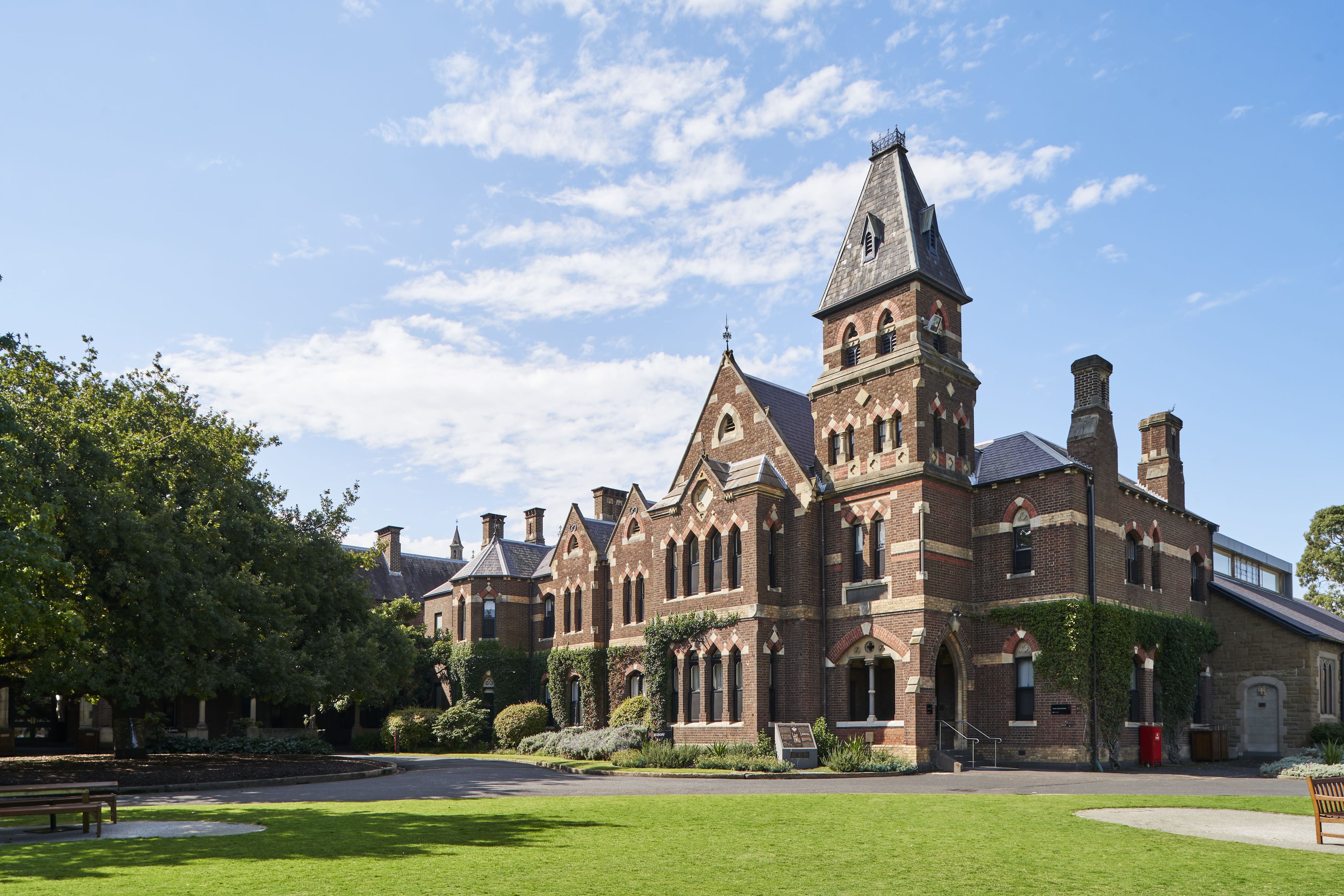Fleur de Lys flashback
The issues of the day in 1938

It’s interesting to look back through old publications to see a moment frozen in time – what were the issues of the day? What kinds of things caught the attention of our students? What was their style of writing? What did they notice and what were they passionate about?
In this month’s Fleur de Lys flashback we republish the politically charged editorial intro to the 1938 edition of our student magazine, when democracies and dictatorships were under the microscope and when there was a lamenting of the devaluing of the arts, a noted dwindling interest in church attendance, displeasure that alcoholic beverages were not available in hotels after 6pm, commentary on the broadcast of fake news and degradation of privacy, and the impact of the wireless was a concern. It’s a reminder that few things are new in this world. While the subject matter may change, many of the issues stay the same.
Here's the entry:
The complacent assumption that there is innate in democratic institutions a mysterious potency, which, of itself, without human exertion, reserves for those so fortunate as to have been born in the British Empire, in France or in the United States, a monopoly of wisdom, of justice, and of efficient government, has waned considerably of late.
Those radical sentimentalists, the little tin gods of the Victorians, whose partisan interpretation of history was largely responsible for this belief, are finding their chapels increasingly deserted, although those who still worship there strive to conceal their diminished numbers by louder protestations.
The rise of Germany and Italy, which nations, weak and disunited while under a democratic regime, of la e led by dictators, have become dominant in Europe, a dominance which the immediate future seems more like to augment than to lessen, indicates where lies the greater measure of efficiency.
The authors of the treaty of Versailles, that first gift to the world of confederated democracy, who redivided Europe according to the principles of strategy, who condemned a great nation to eternal poverty, oppression and disgrace, who, loudly protesting their love of peace, did everything possible to ensure a new and more terrible war as soon as the vanquished had healed their wounds and recruited their strength, seem to have been almost equally devoid of wisdom and justice.

Nor is it possible to regard without dismay the conduct of the democracies during the successive crises of the last three years. Mussolini has seized Abyssinia, Hitler, in addition to fashioning Germany into the strongest military power in the world, has reoccupied the Rhineland, incorporated Austria in the third Reich, and made himself master of as much of Czechoslovakia as he desired.
France has been rendered incapable of effective opposition by internal division, and by the numerous and erratic changes of government which her constitution inevitably engenders.
Disdaining to sully the sea-green incorruptibility of her own political life by contact with debased and effete Europe, the United States models her foreign policy on King Canute’s attitude towards the waves.
Mr Baldwin first of all permitted England’s armaments to be reduced to a perilous degree, then invited Mr Eden to collaborate with him in lecturing on their moral shortcomings hostile nations armed to the teeth.
Only by assuming to himself dictatorial powers was Mr Chamberlain able to secure at Munich an honourable peace, drawing back Europe from the verge of the abyss.
Thus it appears that, in international affairs, the sentimental idealism of the democracies is unable to combat the cynical realism of the dictators.
Further, the internal conditions of the democracies are far from encouraging.
The assaults on wealth and privilege which accompanied the extension of the franchise have deprived the community of able leaders, men who enjoyed the leisure and the ability to train themselves for power and who accepted, with power, responsibility.
Anyone recounting English prime ministers of the last 50 years cannot fail to observe a progressive decline in ability. As Disraeli and Salisbury foretold, power has fallen more and more into the hands of the men of the marketplace, those who find favour with the mob and for whom it is necessary to devote all their energies to pandering to their master’s caprice.
And so Lloyd George promised to shoot the Kaiser and prolonged his tenure of office by three years. Simultaneously it is not difficult to observe an increasing interference with individual liberty. To take an obvious example, it is illegal here in Victoria to sell intoxicating drink after 6pm, after which hour hotels are not even permitted to satisfy the craving of the depraved for lemonade.

Even more alarming is the decline in literature and the arts. For the spread of education, imposed even on the many who are incapable of benefiting from it, has replaced a highly cultured minority, under whose beneficent patronage English literature, German music and Italian painting came to flower, with a tasteless multitude who dutifully laud Milton and read Philip Gibbs, praise the Mona Lisa and flock to see Greta Garbo, admire Mozart and listen to Gershwin.
The arts frequently, though by no means invariably, derive their nature from their environment, and little of value can be hoped for from a people whose culture is dominated by an increasingly standardised system of education by the wireless, the cinema and the newspapers.
The irresponsible misrepresentation of fact, the servile pandering to the lower classes, the genial persecution of privacy which characterises the policy of the cheaper press, almost persuades one of the desirability of some form of State censorship. But it is a profitless task choosing between the whirlpool and the sea monster.
But, outweighing all these lamentable blemishes, democracy offers to its adherents privileges which are rigidly excluded by the narrow perfection of totalitarian systems. If there is such a thing as progress – I speak culturally, not mechanistically – it must depend upon individual improvement, which, in turn, waits upon the opportunity to learn, to think freely and independently, to grow in stature by contemplation of those spiritual values of which all that is of worth in human achievement is the reflection.
While Germany and Italy repel the sterile and destructive frenzy of communism, which, glorifying the robot, denies the function of humanity, it devolves upon the democracies to foster that individual culture in which, as we have seen, lies all the hope of the future; in which duty not a small part can be played by the universities; those whose privilege it is to be education at such institutions owe it to humanity to strive with all the means in their power, developing to the utmost their several abilities, to avert the threatened moment when the ‘great anarch lets the curtain fall and universal chaos buries all’.







